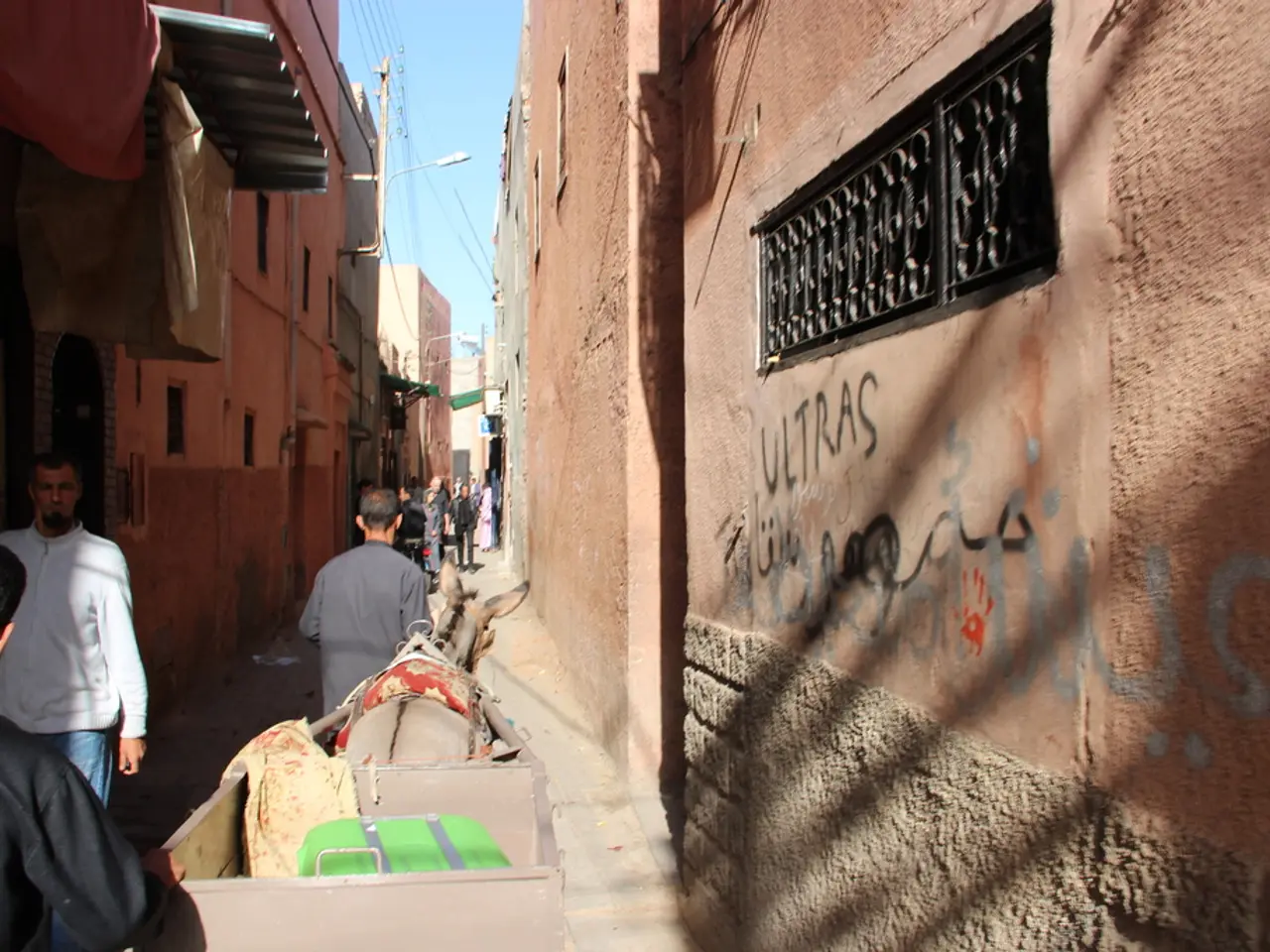Intensified international concern regarding the humanitarian predicament in Gaza
Crisis in Gaza: International Aid Efforts Struggle Amid Controversy
The humanitarian crisis in Gaza continues to worsen, with nearly every person in the region requiring urgent assistance. According to reports, 1.9 million people are displaced, and the entire population faces extreme food insecurity and lack of essential services [1]. The Israeli government's blockade and restrictions on aid entry have limited the scale and effectiveness of humanitarian response, despite obligations under International Humanitarian Law [1][4].
Aid delivery to Gaza remains severely limited, with meal preparation dropping by 74% compared to April 2025 levels, and shipments frequently looted or disrupted along convoy routes [3]. Key international humanitarian organizations, including the International Rescue Committee (IRC), United Nations agencies, and numerous NGOs, continue to deliver limited aid such as nutrition, clean water, sanitation, hygiene services, and child protection [1][3].
However, the Gaza Humanitarian Foundation (GHF), an Israeli-established NGO with U.S. support, plays a controversial and central role in aid distribution inside Gaza. The GHF was created to take over functions previously handled by UN agencies such as UNRWA, but its operations have been widely criticized and condemned by UN experts and humanitarian groups [2]. Since late May 2025, GHF-managed distribution sites have been sites of significant violence and casualties, with nearly 1,400 people killed and over 4,000 injured while seeking aid at these points [2].
UN experts have called for the immediate dismantling of the GHF, characterizing it as a "humanitarian camouflage" that facilitates forced displacement and blocks effective aid access, amounting to a violation of humanitarian principles and potentially war crimes [2][4]. This has intensified the crisis, as the GHF's distribution model has led to dangerous crowding, restricted access for the most vulnerable, and has been accompanied by Israeli and foreign military contractor open fire on civilians [2].
International partners, including foreign ministers of several countries, have urged the Israeli government to authorize all NGO aid shipments, unblock humanitarian actors, ensure safe and large-scale access for aid deliveries, and protect civilians and humanitarian workers at aid distribution sites [4]. These calls highlight the critical need for permanent, unhindered humanitarian space to address famine and ongoing suffering.
As efforts to provide aid to Gaza continue under very difficult conditions, the role of the Gaza Humanitarian Foundation is deeply contested and considered by many humanitarian actors and UN experts to be a significant obstacle to effective aid delivery in Gaza [1][2][3][4].
Key Points
- The humanitarian crisis in Gaza is critical, with nearly every person requiring urgent assistance.
- Aid delivery to Gaza remains severely limited, with meal preparation dropping by 74% compared to April 2025 levels.
- The Gaza Humanitarian Foundation (GHF), an Israeli-established NGO, plays a controversial and central role in aid distribution inside Gaza.
- UN experts have called for the immediate dismantling of the GHF, characterizing it as a "humanitarian camouflage" that facilitates forced displacement and blocks effective aid access.
- International partners have urged the Israeli government to authorize all NGO aid shipments and ensure safe and large-scale access for aid deliveries.
- Despite attempts at international aid, the ongoing crisis in Gaza is worsening due to the controversial role of the Gaza Humanitarian Foundation (GHF), which is accused of facilitating forced displacement and blocking effective aid access, contributing to challenges in the delivery of basic necessities like food, water, and healthcare.
- The political landscape, coupled with war-and-conflicts in Gaza, creates a hostile environment for general-news reporting, further complicating efforts to provide timely and accurate coverage of crimes-and-justice, such as the violent incidents surrounding GHF-managed aid distribution sites that have resulted in numerous casualties among the populace seeking assistance.







